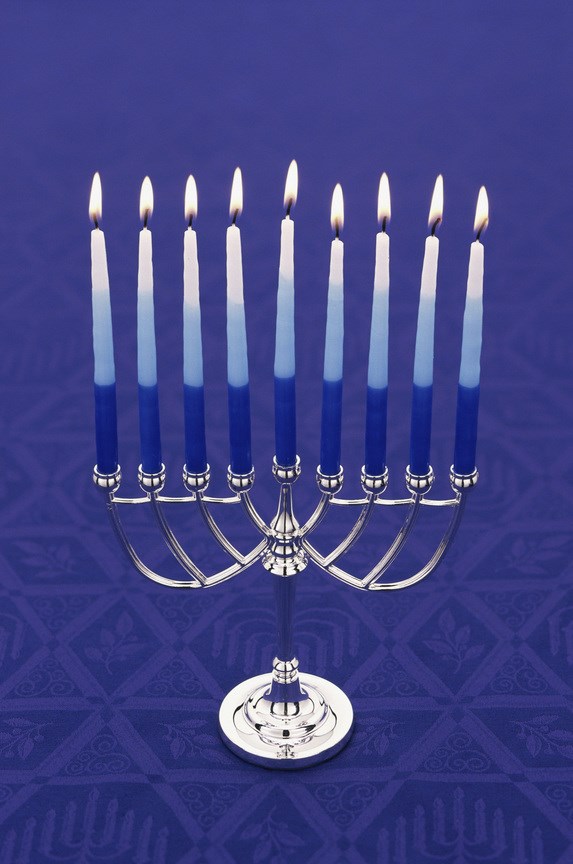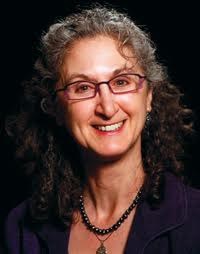 Historical holidays have visible reminders that allude to the story of the holiday’s origin. For Chanukah, one well-known visible reminder is the nine-branched candle holder called a menorah or chanukiah.
Historical holidays have visible reminders that allude to the story of the holiday’s origin. For Chanukah, one well-known visible reminder is the nine-branched candle holder called a menorah or chanukiah.
This special candle holder reminds us of the great miracle that happened in Israel in the 2nd century. At that time, Jews suffered under the rule of the Greek empire where they were forbidden to practice their faith. Instead, they were expected to adopt Greek customs and pray to Greek idols. But the Jews refused to submit and struggled against assimilating into the Hellenistic culture. They fought for their Jewish identity, political autonomy and self-determination.
And a miracle happened.
A small group of Jews led by the priestly Maccabee family, fought hard and won freedom for the Jews. After the war, the Maccabees went to the Holy Temple to light the seven-branched menorah that had gone out during the conflict. They found only enough sanctified oil to burn for one day.
The menorah was supposed to be kept lit 24 hours a day, seven days a week. The Jews had a decision to make. A spiritual decision with practical implications.
You see, the windows of the Temple were narrow on the inside and wider on the outside to let the light from inside the temple shine outward—to bring more light to the darkness outside for people to see from miles around. That light would be a clear signal that the Temple had been reclaimed, the war was over, it was safe to return to everyday activities, and people were free to practice their faith in public.
How would people respond if the menorah only burned for one day and then went out? Would the fighting start again? Would people be afraid? Would they lose hope?
The commandment was to have the light continuously burning. Would it be better to wait until there was enough oil to keep that commandment?
In the end, the Jews decided to light the menorah. It was the right decision. A miracle happened. The oil continued to burn for eight days, until more sanctified oil became available.
That miracle is being repeated around the world this week. There is a darkness sweeping the 21st century that affects everyone of every faith. We call it terrorism. It seeks to wipe out the strides we’ve made in religious and ethnic tolerance and acceptance. It seeks to sow seeds of mistrust, prejudice and racism. It is violent and indiscriminate. It will not stop unless we stop it. And the best way to stop darkness is by shining a light on it and refusing to be enveloped by it.
This week, all around the world, people attended public menorah lightings. In Paris, where last month terrorist attacks hoped to squelch the sparks of light, and despite requests to not hold a public celebration for fear of more attacks, 1000+ people gathered to light a 30-foot menorah under the Eiffel Tower.
In New York where vandals knocked over the public menorahs, people picked them up and relit them.
In Israel, where people face immediate danger from terrorist attacks on a daily basis, the menorahs are being lit in homes and public places to bring light to the darkness.
Here in Victoria, 100+ people stood in front of the legislature and lit the menorah for all to see. Every year when I attend this event, I think of my grandparents and wish they could see how far we have come, despite the darkness that never fully recedes. I look out at the twinkling lights across our city and see the blend of secular and religious motifs—from cartoon reindeer, elves and Santas, to nativity scenes and menorahs—we are pushing back the darkness together.
Like the Maccabees who decided not to wait for the perfect moment to light the menorah, we must create light through good deeds at every opportunity. Start small. Smile at your family and friends. Give someone a compliment. Hold open a door. Give someone a seat on the bus. Volunteer some time or donate some money to a charity of your choice. It doesn’t have to be a big gesture.
To push back the darkness, we just need to shine one small light. Continue to believe and hope in miracles, and miracles will happen every day.
 Fiona Prince, MA is a coach, facilitator and teacher who provides fundamental communication and writing skills to help people succeed in their professional and academic lives. She worships at the Chabad Family Shul where she volunteers teaching children and adults how to read Hebrew. Sign-up for weekly communication tips at www.princeheron.com. To learn to read Hebrew, contact her at [email protected] (Morah means teacher and Faiga is her Hebrew name).
Fiona Prince, MA is a coach, facilitator and teacher who provides fundamental communication and writing skills to help people succeed in their professional and academic lives. She worships at the Chabad Family Shul where she volunteers teaching children and adults how to read Hebrew. Sign-up for weekly communication tips at www.princeheron.com. To learn to read Hebrew, contact her at [email protected] (Morah means teacher and Faiga is her Hebrew name).
You can read more articles on our interfaith blog, Spiritually Speaking HERE


